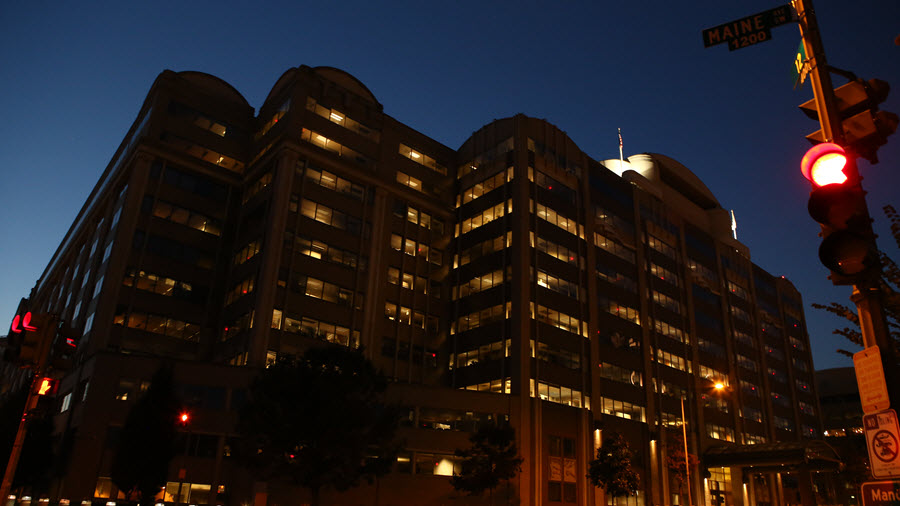FCC Launches 2021 Broadband Deployment Data Collection
Seeks comment on latest methodology for accessing state of closing digital divide

The smarter way to stay on top of the multichannel video marketplace. Sign up below.
You are now subscribed
Your newsletter sign-up was successful
The FCC is seeking comment on the methodology for its 2021 survey of whether advanced telecommunications is being deployed to "all Americans" in a "reasonable and timely fashion, with the COVID-19 pandemic putting new urgency into the answer.
Related: Broadband Data Mapping Rules go Into Effect Sept. 17
The report is mandated by Sec. 707 of the Telecommunications Act of 1996.
The vote was 3-2, with both Democratic commissioners strongly dissenting, having signaled that the FCC should improve its data collection process before collecting new data.
The notice of inquiry explains that "because our next Report is due 180 days from release of this Inquiry, we will not have information from the Digital Opportunity Data Collection [the FCC's proposed new and improved data collection regime] in time for use in the next Report."
For the past three years--under Republican chairman Ajit Pai, the FCC has concluded that that deployment is reasonable and timely because steady progress was being made toward closing the digital divide. Had it not concluded that was the case, the FCC would be empowered to regulate to make it so. Previous FCC's under Democratic chairs had concluded deployment was not reasonable and timely, chiefly because broadband was not available to all.
Democrats look at "all" in the Congressional mandate and find deployment wanting. Republicans look at the pace of increase and conclude it is reasonable and timely.
The smarter way to stay on top of the multichannel video marketplace. Sign up below.
But the newly issued request for input from deployers acknowledges that there is still work to be done.
"Closing the digital divide—and bringing to every American the economic, education, health, civic, and social benefits that a broadband connection provides—continues to be the Commission’s top priority," the Broadband Deployment notice of inquiry said. "As the ongoing the COVID-19 pandemic has pushed more Americans to work, study, see their doctors, and stay connected to friends and loved ones through broadband connections, it serves to underscore the importance of closing this divide and ensuring that people throughout the country have access to digital opportunity."
Stakeholders have until Oct. 5 to comment on how the FCC is structuring the latest survey.
The FCC is proposing to count a range of speeds, what it calls a "holistic view," provided over both fixed and mobile wireless, rather than counting only broadband offered above a benchmark speed "to best capture the ways Americans are using advanced telecommunications capabilities."
The notice of inquiry concedes the issues the problems the FCC recognizes with previous deployment data collections (via its form 477) that have led to congressional mandates to do better and the FCC's own proceeding to that point and seeks comment on to what extent possible overstatement of fixed and mobile deployment may still occur.
Democratic commissioner Jessica Rosenworcel, who supported Democratic commission conclusions that deployment was not reasonable and timely, said the FCC was setting itself up for again neglecting to meaningfully discuss obstacles like affordability and digital literacy. "We have not updated our methodology. We have not modernized our thinking about what is truly broadband. We have not suggested that we will give serious thought to real impediments like cost. At a time that we desperately need a candid accounting from the FCC about the state of broadband in this country, the agency is stubbornly oblivious to how its reporting is at odds with the lived experience of so many people in this country," she said.
"[T]he ugly truth is that when the agency released its last Broadband Deployment Report earlier this year it concluded that broadband deployment was “reasonable and timely” nationwide," she said. "In other words, it found all was well. It clapped its hands and said job done. That’s just not right."
Commissioner Geoffrey Starks seconded that assessment in his dissent.
"[T]he Commission continues to repeat its mistakes. As I noted in my dissent from last year’s Notice of Inquiry, I fundamentally disagree with the approach of comparing broadband providers’ deployment in one year against their deployments in prior years to measure 'progress,'” he said. "I continue to believe this approach gives us little understanding of internet inequality and the ways to combat it. We also continue to rely on the Commission’s misleading Form 477 data. I am disappointed that, despite broad recognition that Form 477 has distorted our view of the digital divide, the Commission did not develop alternatives in time for this year’s Notice of Inquiry."
The Republican commissioners issued no statements.
Contributing editor John Eggerton has been an editor and/or writer on media regulation, legislation and policy for over four decades, including covering the FCC, FTC, Congress, the major media trade associations, and the federal courts. In addition to Multichannel News and Broadcasting + Cable, his work has appeared in Radio World, TV Technology, TV Fax, This Week in Consumer Electronics, Variety and the Encyclopedia Britannica.

